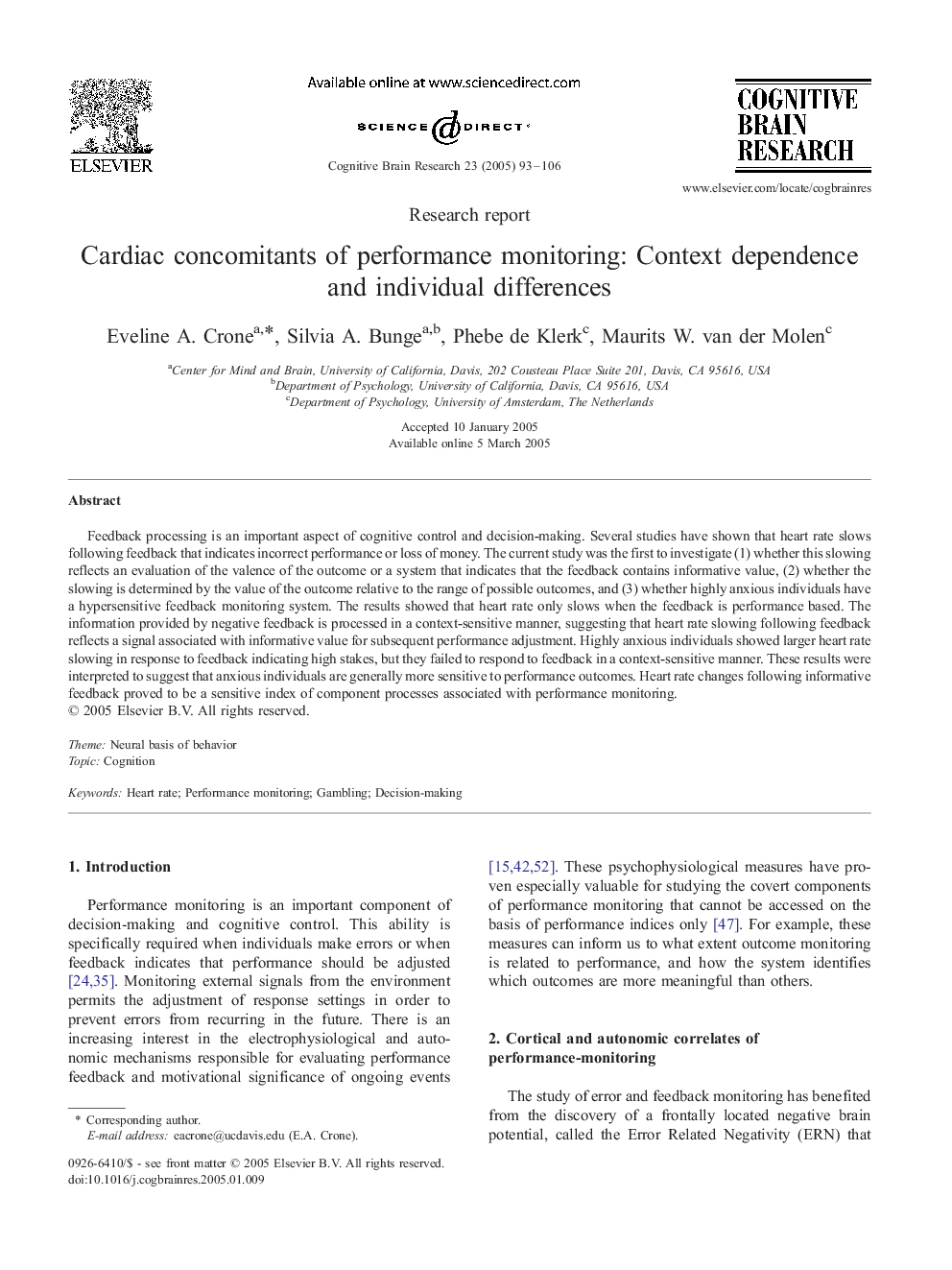| Article ID | Journal | Published Year | Pages | File Type |
|---|---|---|---|---|
| 9408180 | Cognitive Brain Research | 2005 | 14 Pages |
Abstract
Feedback processing is an important aspect of cognitive control and decision-making. Several studies have shown that heart rate slows following feedback that indicates incorrect performance or loss of money. The current study was the first to investigate (1) whether this slowing reflects an evaluation of the valence of the outcome or a system that indicates that the feedback contains informative value, (2) whether the slowing is determined by the value of the outcome relative to the range of possible outcomes, and (3) whether highly anxious individuals have a hypersensitive feedback monitoring system. The results showed that heart rate only slows when the feedback is performance based. The information provided by negative feedback is processed in a context-sensitive manner, suggesting that heart rate slowing following feedback reflects a signal associated with informative value for subsequent performance adjustment. Highly anxious individuals showed larger heart rate slowing in response to feedback indicating high stakes, but they failed to respond to feedback in a context-sensitive manner. These results were interpreted to suggest that anxious individuals are generally more sensitive to performance outcomes. Heart rate changes following informative feedback proved to be a sensitive index of component processes associated with performance monitoring.
Related Topics
Life Sciences
Neuroscience
Behavioral Neuroscience
Authors
Eveline A. Crone, Silvia A. Bunge, Phebe de Klerk, Maurits W. van der Molen,
